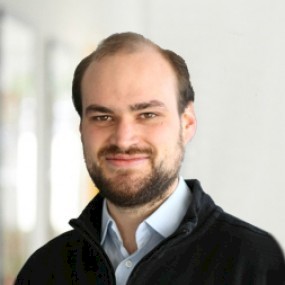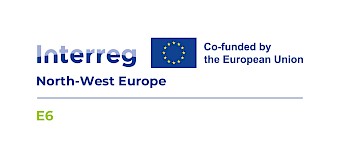Interreg North-West Europe project E6: Ecosystems for Extended Lifetime of End-of-use Electrical and Electronic Equipment
Ansprechpartner
Bearbeitung
Kooperationspartner
Auftraggeber
Projektlaufzeit
Projektziele
Elektroschrott nimmt EU-weit durch verkürzte Produkt-Lebenszyklen stark zu. Regulatorische Initiativen, wie das Recht auf Reparatur, bieten Anreize zu einem Systemwandel: Wiederverwendung, Aufarbeitung und Reparatur sollen dabei stärker genutzt werden. Auf kommunaler und lokaler Ebene werden in verschiedenen Ländern Europas bereits Konzepte zur Etablierung solcher Kreislauf-Ökosysteme erprobt. Die Herausforderung besteht nun darin, die Pilotprojekte fortzuentwickeln und Erkenntnisse zu verallgemeinern und in skalierbare Handlungsempfehlungen und Richtlinien zu übersetzen.
Mit mehr als 20 Partnern in sechs Ländern werden solche Pilot-Ökosysteme entwickelt, praktisch erprobt und wissenschaftlich begleitet. E6 konzentriert sich dabei auf physische und digitale Infrastruktur, um Akteuren niedrigschwellige Unterstützung zu bieten und einen Rahmen für eine verlängerte Nutzungsdauer von Elektrogeräten zu etablieren.
Das ifh Göttingen führt ein reflexives Monitoring bestehend aus Interviews, Umfragen und Datenauswertung für die Pilot-Ökosysteme des Projekts durch. Insbesondere werden die Daten der im Projekt entstehenden Plattform zur Vermittlung von Reparaturleistungen analysiert. Dies ermöglicht die Identifikation von Hemmnissen und Treibern für Reparaturaktivitäten und erlaubt es, Schlussfolgerungen bzgl. eines optimierten regulatorischen Rahmens zu ziehen. Ziel ist es, eine Grundlage zur Skalierung von Reparaturaktivitäten zu schaffen, welche neue Geschäftsfelder, vor allem für den Handwerkssektor eröffnet. Dabei werden bestehende Erkenntnisse aus Kreislaufwirtschaft, digitaler Transformation und Reparatur im Handwerk verknüpft, um praxisrelevant Implikationen für die Akteure der Wirtschaftspolitik zu formulieren.
Mit einem Gesamtbudget von 8.150.000,00 €, einschließlich 4.892.000,00 € finanzieller Unterstützung von Interreg NWE, zielt E6 darauf ab, den Wandel zu einer kreislauforientierten und ressourceneffizienten Ökonomie zu fördern, indem die Möglichkeiten europäischer Städte und Regionen für Wiederverwendungs-, Reparatur- und Aufbereitungsarbeiten für Elektro- und Elektronikgeräte verbessert werden.
___________________________________
Due to shortened product life cycles, Waste from Electrical and Electronic Equipment (WEEE) is increasing significantly across the EU. A systemic change is needed. Regulatory initiatives, such as the right to repair, offer incentives to change the system: reuse, refurbishment and repair should be used to a greater extent. Concepts for establishing such circular ecosystems are already being tested at municipal and local level in various European countries. The challenge now is to advance pilot projects, generalize the findings and translate them into scalable recommendations for action and guidelines.
Together with more than 20 partners from six countries, such pilot ecosystems are being developed, tested in practice and scientifically monitored. E6 focuses on physical and digital infrastructure to offer stakeholders low-threshold support and establish a framework for extending the lifetime of electronic devices.
The ifh Göttingen is carrying out a reflective monitoring consisting of interviews, surveys and data evaluation for the project's pilot ecosystems. In particular, the data from the platform for brokering repair services being developed in the project will be analyzed. This enables the identification of hurdles and drivers for repair activities and allows conclusions to be drawn regarding an optimized regulatory framework. The overall objective is to create a basis for scaling repair activities, which opens up new business areas, especially for the craft sector. Existing findings from the circular economy, digital transformation and repair in the skilled crafts sector will be linked in order to formulate practical implications for economic policy stakeholders.
With a total budget of €8,150,000.00, including €4,892,000.00 financial support from Interreg NWE, E6 aims to promote the transition to a circular and resource efficient economy by increasing the capacity of European cities and regions in facilitating Re-use, Repair, and Refurbishment (RRR) practices for electrical and electronic equipment.


